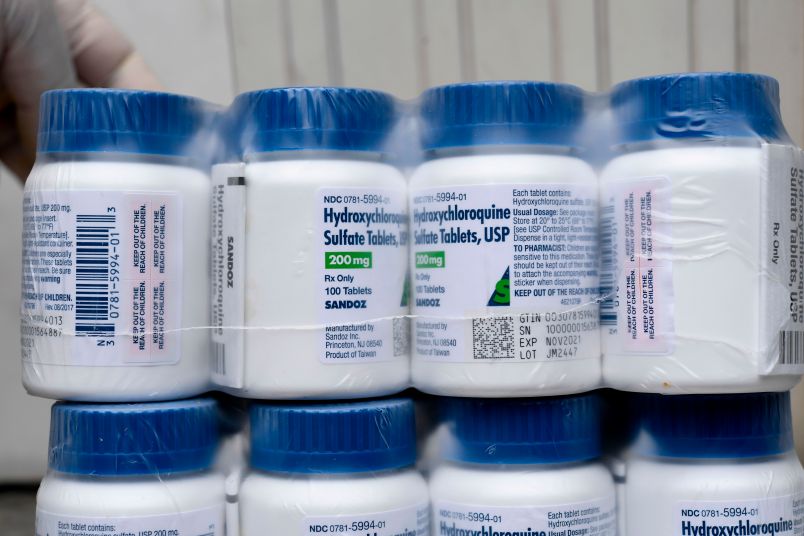The Food and Drug Administration on Friday warned that heart complications caused by the antimalarial medications championed by President Donald Trump “can be life-threatening.”
The FDA flagged “reports of serious heart rhythm problems” in COVID-19 patients treated with the antimalarials Trump has hyped, hydroxychloroquine or chloroquine. It also pointed out the “increased use of these medicines through outpatient prescriptions.”
“Therefore, we would like to remind health care professionals and patients of the known risks associated with both hydroxychloroquine and chloroquine,” the agency said, warning against using the drugs outside of a clinical or hospital setting.
Trump has for weeks boosted the drugs despite the lack of widespread evidence that they are effective against COVID-19.
A study of VA hospital patients recently failed to find hydroxychloroquine effective against the disease, and a Brazilian study of chloroquine use on COVID-19 patients was halted due to the risk of fatal heart rate irregularities like those described in the FDA warning.
Just last month the FDA issued an emergency use authorization, or EUA, to allow millions of donated doses of chloroquine and hydroxychloroquine to be distributed to hospitals through state public health officials. The director of the agency that received the authorization, who was recently demoted to another role, alleged this week that he faced political pressure to allow the widespread use of the drug.
At the time the EUA was issued, in late March, medical and regulatory experts rang alarm bells about insufficient evidence supporting the drugs.
“I would like to see who [at the FDA’s Medical Countermeasures Initiative] signed off on this EUA despite the total lack of scientific evidence that chloroquine/hydroxychloroquine are beneficial in the treatment of COVID-19,” Luciana Borio, the FDA’s former acting top scientist, wrote in response to the emergency authorization.
“EUA is supposed to be issued when the evidence indicates that benefits outweigh the risks.”
Trump’s boosterism of the drugs has prompted fear among regular users — the medicines were used to treat lupus and rheumatoid arthritis long before the COVID-19 pandemic — about supply issues. The heart complications among COVID-19 patients using the antimalarials have arisen more recently as the drugs have come under increased scrutiny.
“We are continuing to investigate these safety risks in patients with COVID-19 and will communicate publicly when more information is available,” the FDA wrote.



